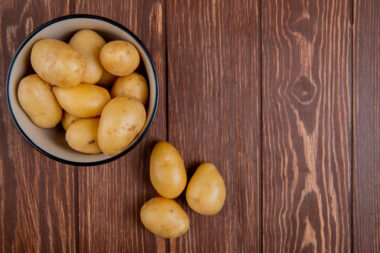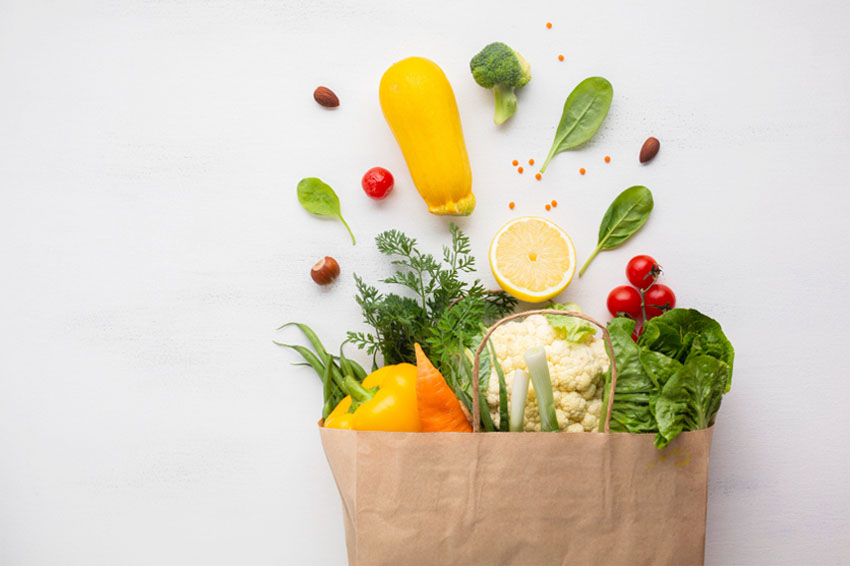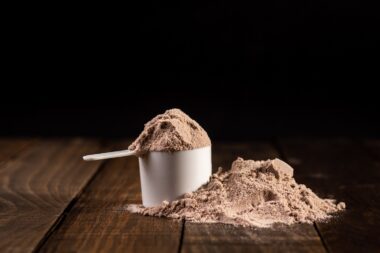It is well known that eating veggies can do wonders for your health. Despite the fact that different vegetable types contain different particular nutrients, all variations are healthy.
It’s easier to get the vitamins, minerals, fiber, and antioxidants your body needs to flourish when you consume the required five servings of produce each day from a variety of sources.
Some veggies are richer in nutrients than others. Other vegetable can be an excellent source of a nutrient that one is poor in, like vitamin C. The value of diversity stems from this.
Here is a list of vegetables that you should include in your diet starting today.
1. Carrots
A sort of root vegetable that also contains potatoes, beets, turnips, and parsnips is the carrot. This vegetable is nutrient-dense and high in potassium, fiber, vitamin C, and beta carotene.
Additionally, some studies suggests eating specific molecules in carrots may lower the chance of developing some malignancies.
Researchers discovered that a higher self-reported consumption of carrots was linked to a lower risk of colorectal cancer.
Even though this study has a number of limitations, carrots are a valuable source of key nutrients that should be regularly included in your diet to promote improved overall health.
2. Onions
The allium family of plants, which also includes garlic and leeks, may not be the first to come to mind when contemplating new veggies to include in your diet, but onions are a powerhouse of vitamins and anti-cancer chemicals.
Generally low in calories and fat, onions also contain important micronutrients like potassium and vitamin C.
Interestingly, onions’ outer layers have been shown to contain the largest concentration of antioxidant chemicals; thus, for the best results, peel your onions as little as possible before using them in recipes.
Quercetin, a plant substance found in onions, may help decrease blood pressure and support a heart that is generally healthy. However, there is conflicting evidence among the several studies on quercetin’s impact on blood pressure that used onion extracts.
Despite this, onions have a rich, earthy flavor when cooked and are a source of many essential nutrients, solidifying their place on our list.
3. Cucurbita moschata
A huge vegetable with a thick shell and a deep, orange core is also referred to as butternut squash or crookneck pumpkin.
One cup of the flesh of this winter squash has more than 10% of the Daily Value for potassium, more than 50% of the Daily Value for vitamin C, and more than 10% of the Daily Value for fiber.
Beta carotene, a precursor to vitamin A, which is necessary for eye health and eyesight, is also found in crookneck pumpkin.
4. Arugula
Commonly referred to as salad or garden rocket. This leafy green is flavorful, healthful, and refreshing.
Arugula, sometimes referred to as rocket, has a distinctively peppery taste among leafy green vegetables. It contains a lot of vitamin C and is a good source of calcium, magnesium, potassium, and folate.
A significant source of folate, which supports DNA synthesis and is particularly crucial during pregnancy or while trying for a baby, is arugula.
The glucosinolates found in arugula are similar to those found in cruciferous vegetables like broccoli and Brussels sprouts.
According to research, glucosinolates may have benefits for your health, such as a reduced chance of developing some malignancies.
Arugula is an excellent source of carotenoids, which are crucial substances linked to cardiovascular and eye health, along with a number of other orange vegetables.
5. Brussels sprouts
A good source of vitamins, minerals, and phytochemicals with antioxidant capabilities are cruciferous vegetables like Brussels sprouts.
Miniature Brussels sprouts, which resemble small cabbages, are full of vitamin K, which is crucial for bone health and blood clotting.
Additionally, 1 cup of Brussels sprouts has more than 100% of the recommended daily intake of vitamin C and more than 10% of the recommended daily intake of fiber.
Glucosinolates are found in Brussels sprouts as well as other cruciferous vegetables including kale, cabbage, and broccoli.
These plant-based chemicals have been linked to decreased inflammation, which may have positive effects on health.
6. Mushrooms
Despite being considered a vegetable when it comes to your eating habits, mushrooms are actually a type of fungus.
They are naturally low in calories, fat, and salt, but they are also great sources of a variety of other nutrients and chemicals that have been linked to a range of advantageous health effects.
Fiber, potassium, and many B vitamins, such as pantothenic acid, riboflavin, and niacin (vitamin B3), are all found in mushrooms (vitamin B5).
Mushrooms are a rich source of vitamin D because it helps the body absorb calcium and supports healthy bones when exposed to UV light during the developing phase.
Mushrooms also contain ergothioneine, an amino acid that functions as an antioxidant and has a number of health advantages, including a decreased risk of cancer.
7. Green peas
Peas are a kind of vegetable known as a legume, along with lentils and beans. One of the vegetables with the greatest levels of protein and fiber is green peas.
8 grams of plant-based protein and more than 25% of the daily recommended fiber intake are both included in one cup.
Additionally, one cup has near to 100% of the recommended daily intake of vitamin C and around 10% of the recommended daily intakes of iron, vitamin B6, magnesium, and potassium.
Peas are not only very nutrient-dense but also reasonably priced. To help extend their shelf life, choose frozen or canned options; just be mindful of salt and flavorings that have been added.
8. Potatoes
Although potatoes sometimes have a negative image, these nutrient-rich veggies are a great source of important elements including potassium, fiber, and vitamin C.
Potatoes are a rich source of potassium, which may assist to naturally decrease blood pressure by fending against the negative effects of a diet high in salt. They are a preferred food for athletes and individuals who are active since they are high in carbs.
According to one study, eating potatoes while engaging in endurance activity is just as beneficial to performance as consuming carbohydrate gels.
Because of this, potatoes may appeal more to athletes searching for whole-food sources of carbohydrates while exercising.
9. Bell peppers
Bell peppers are a lesser-known source of vitamin C and are particularly rich in this antioxidant, which is important for iron absorption, skin and tissue regeneration, and immunological function.
Carotenoids, which are health-promoting substances linked to a lower risk for chronic illnesses including cancer and cardiovascular disease, are also found in bell peppers.
3.5 ounces of one medium bell pepper, or more than 100% of the daily value for vitamin C.
10. Beetroot
These vibrant root vegetables are among the greatest to include in your regular rotation since they are loaded with nutrients that are good for your health.
4 grams of fiber and more than 10% of the Daily Value of potassium are both present in one cup of beets. Additionally, beets include folate, magnesium, and phosphorus.
The antioxidant properties of betalains, which are present in beets, are linked to a lower risk of cardiovascular disease. Additionally, betalains could help control blood pressure.
Due of their high nitrate content, beets and beet juice are frequently utilized by athletes as ergogenic aids. The body transforms these nitrates into nitric oxide, which can aid in boosting blood flow.
Conclusion
There are so many diverse vegetable varieties, each with their own distinct nutritional profiles and health advantages. Try incorporating many different sorts during your usual week to get the most advantages. It might be simpler and cheaper to choose canned or frozen foods. Variety is the flavor of life, after all, and it may even be beneficial for your health.
Thumbnail Credit: Freepik

Anvi has done Bachelor’s and Master’s in Nutrition and Dietetics. She’s planning to do a Ph.D. in Public Health Nutrition moving forward.







































Leave a Reply